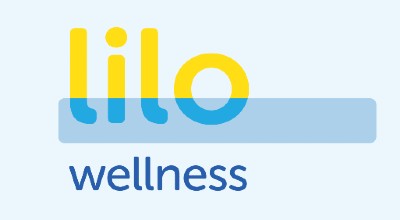By Susie Hopkins
I remember so clearly when my son was identified as being level two autistic (I don’t use the term diagnosed anymore as I like to promote positive autistic identity which means I see autism as difference not a disorder). While I was obviously concerned on many fronts, it was information overload that caused me to feel most overwhelmed in those initial days and weeks.
It was as if a dam had burst and I was drowning in so many different types of information. Info about autism, therapies, sensory processing, communication and speech, occupational therapy, the NDIS, my new identity of carer, and all the paperwork, policies and time-sucking beurocratic procedures were enough to send me very nearly insane!
If this is you, take a deep breath, there is time to learn all you need to know and it does settle with time as you come to better understand your child and their needs. While it’s really important to arm ourselves with knowledge, it takes time. And there are some great ways to fast-forward this, such as using services such as the Carer Gateway phone service, and other parent support and education services (such as the one listed at the end of this article).
We are living in the information age and info overload is a threat to everyone, not just to us mamas caring for our kids with disabilities, but we do have a whole extra layer of information to contend with. On top of this, we are living through a global pandemic which has seen so many of us scrolling, consuming news and using tech to connect with others far more than we ever had before.
In terms of connecting with loved ones and keeping businesses alive during long periods of lockdown we are so blessed to be living in the information age. And then there’s the gift of the ‘democratisation of information’ when it comes to researching our children’s disabilities and health issues.
However, as we all know there’s a downside to having such incredible tech at our fingertips. We know how social media can be very harmful if used without care and it’s easy for scrolling habits to spiral out of control. The algorithms are not only addictive but send often unwanted bad and fake news our way. Sadly, this can have a terrible impact on our mental health which for many of us is already very fragile due to huge amounts of stress we’re dealing with day to day.
For this reason, it’s important to take steps to make sure your use of the internet is not impacting your mental wellbeing. And It’s also incredibly important that the information you are accessing, especially when it comes to managing your child’s condition and/or disability, is of a high quality.
Information from peers online is invaluable – if used with caution
It’s not exactly rocket science and hardly a surprise just how incredibly helpful peer support is when it comes to difficult experiences. It’s why so many of us join Facebook groups and similar social networks for support and information to help us meet our kids’ needs. However, it is also important to take care online when it comes to getting advice in these virtual spaces.
I have personally got a huge number of great ideas for managing mine and my son’s health and disability challenges. From his sensory needs and autism and both of our food intolerances and ADHD, we have definitely benefitted from others’ experiences in these groups. However, arming yourself with a few principles on how to use the information shared in these groups will make sure they are more helpful than harmful.
Here are some tips for engaging with online support groups:
• If someone states something as fact, ask them if they have a source for the information they’re sharing.
• If you ask for advice, see the responses as ideas that need to be considered in light of a range of information from different sources. Don’t think of the advice given in these forums as the only answer and ever take advice blindly without considering all the consequences.
• Use forums for recommendations, ideas and less technical, creative solutions to problems. Leave questions related to diagnoses, medications, procedures and related information for the professionals, or perhaps ask if there is someone in the group that has professional knowledge that may be helpful.
- Be prepared for, and expect, differing points of view and endeavour not to take things personally. Text can have a different ‘tone of voice’ than what was intended and how we interpret things is very much impacted by your own mood.
- Following on from the last point, don’t engage in arguments online. It is a waste of energy and doesn’t support your or your child’s needs which is why you’re there.
Medical and other expert information
While it is important to listen to doctors’ advice and in many cases their expertise is a Godsend, the medical model by its very nature is looking at problems only. Depending on the disability your child has, only focusing on what experts and therapists tell you about them may lead you to see your child with too much emphasis on what is ‘wrong’ with them instead of just how incredible they are in so many ways.
In truth, all of us have a huge range of wonderful strengths, talents, traits and also some challenges or things that we struggle with or take us longer to grasp. ‘Pathlogising’ differences in development can have a terrible impact on our and our children’s mental health.
Developmental norms may be useful for identifying where help is needed but they’re best seen as a tool that simply help us understand our kids as opposed to some ‘gold standard’ they should be living up to. This is especially relevant when it comes to some neurodevelopmental characteristics such as autism and ADHD for example. But it really applies to all kids.
We can embrace disability as way of living that is no longer bound by the ridiculous expectations that people fit into a one size fits all mentality. It is our challenges that teach us. A blind person may have incredible hearing and a sense of touch that can never be experienced by a sighted person. And a person who cannot walk may end up an international sports champion and have a girlfriend that looks like a supermodel not to mention a sex-life that is the envy of many! Just look at Dylan Alcott.
Evidence-based information
While on the one hand we need to be cautious of too much medical information, there is no doubt that research is a powerful tool for discerning what strategies and treatments we should try with our kids. For quality evidence-based information (and other information about services and support) you can’t go past the Raising Children Network website.
It’s worth considering though that the idea of ‘evidence’ is slippery one as there is a huge sliding-scale of different levels or strengths of evidence. The gold standard in science is referred to as ‘evidence-based’. In the purest sense, only when results of a high number of very good quality studies with large numbers of participants have been performed and replicated over and over is something referred to as evidence-based.
This is important when it comes to the dissemination of information and resources but there are also many great strategies or ways of managing that haven’t got enough research behind them so they’re not yet considered evidence-based.
This approach is really useful when considering interventions such as medication and procedures that the scientific method lends itself to measure accurately. More complex therapies and/or causal relationships are much more difficult to research however because there is so much to consider and researching them in a black and white linear way is much more difficult or may not be possible
So, while it’s important to listen to science, it’s also important to understand its limitations. Anecdotal evidence, for example, a chat with a friend who has faced a similar challenge or a story in a FB group, is also worth listening to with an open mind.
Other sources of evidence-based information include government and university websites. (FYI The Raising Children Network site mentioned above is funded by the Commonwealth Government). Not-for-profits and peek body websites also often contain high quality information. Privately owned sites are less reliable but if they reference their articles in a consistent way and they don’t claim what they are sharing to be ‘fact’, or they have an expert reference-group, this is a good sign.
Lived experience is invaluable
Some of the most valuable information I have come across when it comes to helping my child and therefore our family thrive has been from autistic people. The audiobook version of a book written by a non-speaking 14-year-old boy, The Reason I Jump, which you can listen to for free on YouTube changed our lives as it increased my understanding of my child beyond measure.
Listen to the perspective of other mums and people with disabilities to learn about their experience. But remember, they are simply individuals and their experiences vary too, so getting more than one perspective is important.
For the first time in history the lived experience of people is being considered as just as valuable, if not more so, than that of the experts. This is a wonderful development as it is a validating process and is also leading to a wave of disability activism and advocacy that is changing the face of disability from an issue that affects a few on the margins of society to a conversation that’s occurring more and more in the mainstream.
Install a screen-time tracker on your phone
On a really practical level, if your internet use and information overload are having a negative impact on your wellbeing, you might consider installing a screen time tracker on your phone. In a nutshell, awareness changes behaviour. Just as wearing a pedometer increases the amount most people will walk, tracking how much time you are spending online can help motivate you to cut back. Here’s an article that reviews a number of screen-time trackers.
And finally, the good news is that the tsunami of information I experienced in the weeks after my son’s diagnosis has subsided to a trickle these days. I never stop learning different ways to help him thrive from a lot of different sources and it is a life-long learning process. I’m so grateful to the countless people who have shared invaluable insights to me on this journey and I hope this information is helpful to you in much the same way.

Learn how to feel less stressed in under an hour
A FREE crash-course for parents of kids with special needs – Because when you’re less stressed your whole family benefits.
Specially designed for time-poor parents and carers, this concise course is packed full of actionable insights to help you create a life with less stress for the whole family.
It has been created by Susie Hopkins who is a Registered Nurse, has a Masters of Public health and yoga and mindfulness qualifications. She has been teaching stress management for almost 10 years and is also the sole parent of an autistic child.
Click on the link above for more information.




